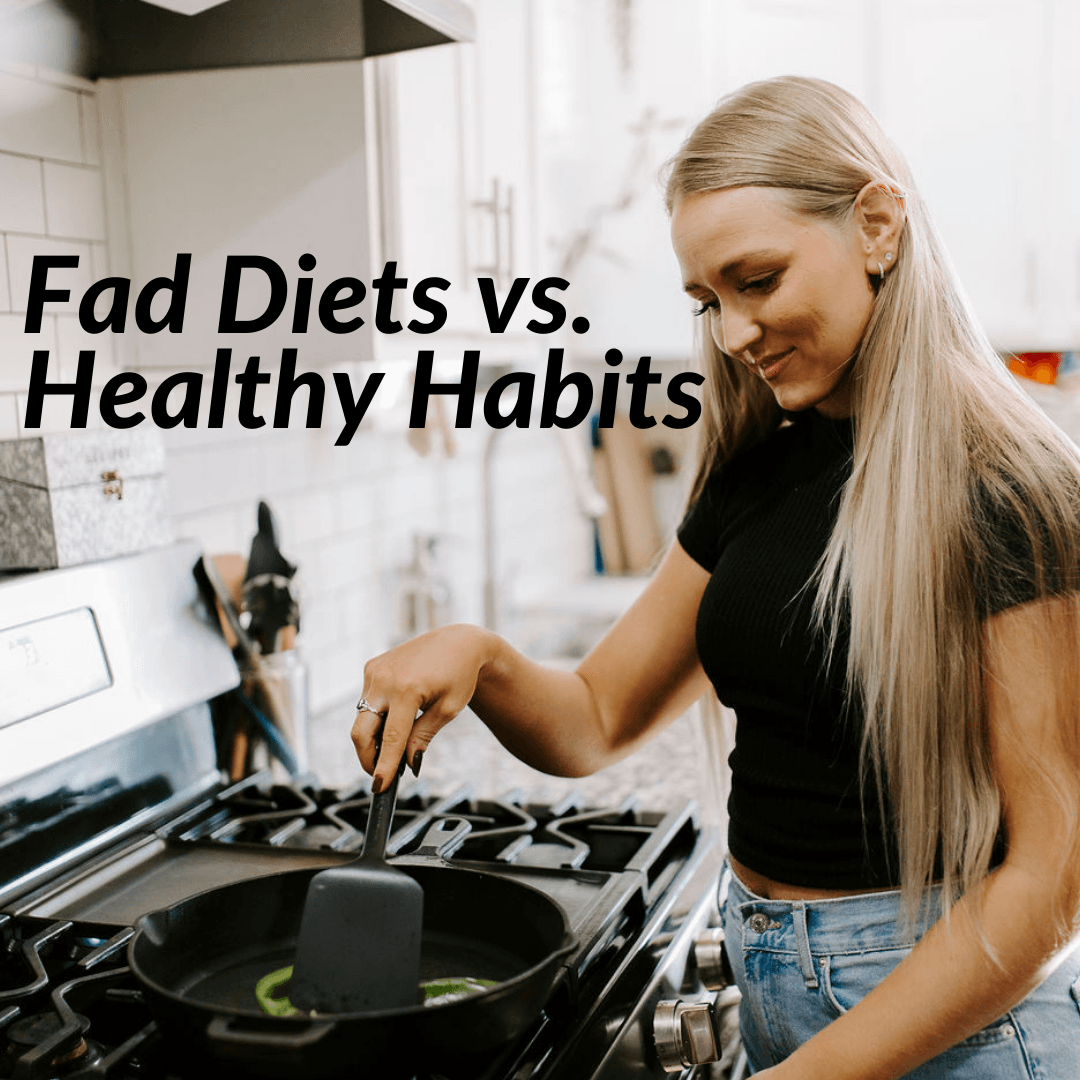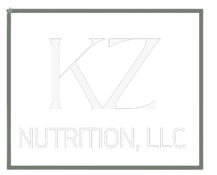Blog

Author: Kamryn Hilton, RD, LD Published: October 31st, 2025 What is the Carnivore Diet? Highly restrictive diet approaches, such as the carnivore diet have gained popularity over the years for their perceived benefits on weight loss and other areas of health and wellness. The purpose of this article is to present what we know (and what we don’t know) about the carnivore diet to better inform you about this trend in the world of health and wellness. A Little History on Carnivore The origins of the carnivore diet date back centuries ago. In the late 1700s, a Scottish doctor by the name of John Rollo used a meat-only diet on two of his diabetic patients to successfully lower their blood sugar (1). In 1856, a German writer named Bernard Moncriff wrote "The Philosophy of the Stomach”; or an “Exclusively Animal Diet is the Most Wholesome and Fit for Men”, claiming that men should live exclusively on an animal-only diet (based on his personal experience) (4). Then, in the early 20th century, arctic explorer Vilhjalmur Stefansson adopted an all-meat diet (including caribou, seals, walruses, whales, seabirds, and fish) while living with the Inuit (5). He documented improvements in his own health and a lack of chronic disease, which was then shared and popularized by other researchers later on. The carnivore diet started gaining popularity around 2018, when an orthopedic surgeon, Dr. Shawn Baker started promoting it on podcasts, including Joe Rogan’s. He claimed certain benefits including weight loss and improved overall health, based on anecdotal experience, which caught many people's attention. Carnivore Diet Basics The carnivore diet is based exclusively on animal products - beef, poultry, seafood, eggs, and some dairy. It excludes all plant foods, like fruit, vegetables, whole grains, and legumes. It goes beyond a standard low-carbohydrate or ketogenic diet, which may include non-starchy vegetables, nuts, and seeds. While there are no universal parameters for macronutrient proportions, the carnivore diet typically ranges between 60–80% calories from fat and 20–40% calories from protein, with the remaining carbohydrate intake usually being below 5% of total calories (1). This is quite different from the Acceptable Macronutrient Distribution Range according to The Dietary Guidelines for Americans, which are: 45-65% carbohydrates, 10-35% protein, and 20-35% fat. What Does the Research Say About the Carnivore Diet? There is a lack of scientific evidence on the long-term effects of following the carnivore diet, but here’s what current studies are showing. Potential Benefits Of the Carnivore Diet A 2020 survey gathered responses from 2,029 adults who reported following the carnivore diet for at least 14 months. Based on those responses, 95% of those following the diet reported improvements in overall health (2). Some specific areas of improvement include insulin resistance, cognition, cravings, and weight. While notable improvements in a variety of health conditions were reported in this study, it is important to keep in mind the limitations of self-reporting. Self-reported data leaves a lot of room for flaws in the data due to factors like social desirability bias, recall bias, and question misunderstanding. If you keep up with trends in the health and wellness world, you know that there’s a lot of hype around protein. This definitely isn’t a bad thing considering the fact that many Americans do not eat enough lean protein, and that protein is essential for muscle growth and maintenance, tissue repair, immune support, and hormone and enzyme production. Since the carnivore diet is all animal foods, it is naturally higher in protein. A notable fact about protein is it takes longer for your body to break down and digest, meaning that it keeps you fuller longer. The satiating effect of a high protein diet can lead to a decrease in overall calorie intake, eventually leading to weight loss. The carnivore diet is also high in certain key micronutrients, such as iron and B-vitamins. Iron is an essential mineral responsible for transporting oxygen to the bloodstream. The B-vitamin complex is crucial for metabolism and energy production. Deficiencies in these nutrients can lead to fatigue and other complications. This may explain an improvement in energy reported by some people while on carnivore, especially if their previous dietary patterns were lacking in those nutrients. In the 2020 survey mentioned above, we don’t know what those individuals’ nutrition habits looked like before going carnivore. It is possible that many of these people had very poor diets to begin with, and certain health improvements can often be expected when someone makes a dramatic shift from a diet containing mostly ultra-processed foods, to a diet that contains mostly whole, natural foods. Areas of Concern A few main areas of concern when it comes to the carnivore diet are nutrient deficiencies, heart health, and digestive health. Nutrient Deficiencies Following any extremely restrictive diet does present the risk for developing nutrition deficiencies. Nutrients of concern while following the carnivore diet include: Vitamin C, Potassium, Magnesium, and Fiber. When it comes to the carnivore diet, vitamin C is interesting to discuss. Vitamin C is a powerful antioxidant, essential for a strong immune system, and can be found in a variety of fruits and vegetables. While ther e are tiny amounts of vitamin C that may be found in certain meats, particularly organ meats, animal sources simply do not provide adequate amounts for human needs. Not to mention, vitamin C is easily destroyed with cooking, and I definitely don’t recommend eating raw liver to meet your daily vitamin C needs. Scurvy is a vitamin C deficiency disease characterized by fatigue, bleeding gums, loose teeth, and skin lesions. While it is possible for someone following an all-meat diet to develop this disease, it is not very common among carnivores. This may be prevented through eating organ meats and through vitamin C supplementation. Magnesium plays an important role in a variety of physiological functions, including energy production, muscle and nerve function, and blood pressure regulation. Potassium also plays a role in blood pressure regulation and muscle and nerve function, along with electrolyte balance, kidney function, and bone health. They are most abundant in a variety of plant-based foods. While you can get some amount of these nutrients through some animal-based foods, it is very difficult to consume enough each day through animal foods alone. Heart Health The topic of the carnivore diet and cardiovascular health remains controversial. Several studies have suggested that higher meat consumption is associated with increased risk for cardiovascular disease (6). It is important to note that most of these studies are observational studies. This means they find correlations, but can’t prove any causation, like a randomized control trial could. Many people experience elevations in LDL cholesterol when consuming a carnivore diet due to its high amount of animal fats (saturated fat) (2). Saturated fat has been frowned upon in the health/medical world for its potential in increasing LDL cholesterol and inflammation, leading to health consequences like cardiovascular disease and stroke. However, there is some controversy around saturated fats as newer research is suggesting some potential benefits. For instance, an observational study done in 2020 concluded that saturated fatty acids may lead to less cognitive decline (7). For decades, LDL cholesterol has been known as the “bad” cholesterol that increases the risk of atherosclerosis and cardiovascular disease. What’s interesting is one 2018 study has come out to say that the idea of cholesterol causing cardiovascular disease is supported by fraudulent reviews of literature (8). In conclusion to all of the controversy around fat and cholesterol, I think it is best to not focus so much on one single nutrient, but focus on balance, variety, and overall diet quality. Gut Health Fiber is a key nutrient that supports digestive health. Numerous studies have confirmed that increased fiber intake is associated with a decreased risk of colon cancer. Fiber also helps produce short-chain fatty acids in the gut microbiome, like butyrate (3). These fatty acids are essential for metabolic health, immune function, and enhancing your gut barrier (i.e. preventing leaky gut ). Following a carnivore diet typically leads to a decrease in butyrate due to a decrease in fiber fermentation (1). While it is true that you can get butyrate from dietary sources like butter, parmesan cheese, and goat cheese, your body’s primary source for butyrate is through the fermentation of indigestible carbohydrates, such as cellulose and resistant starch. Despite the decrease in fiber intake, some people claim that their digestion is either the same, or even better, while following the carnivore diet. There are some theories out there regarding microbiome adaptation, meaning your gut’s ability to change its microbial community based on certain external factors, like diet. It’s important to keep in mind that just because you have a daily bowel movement, does not mean that the trillions of microorganisms in your gut are functioning optimally. Overall, more randomized control trials are needed to understand the relationship between meat intake and the gut microbiota. Should I Try the Carnivore Diet? Going carnivore definitely does NOT mean eating a bunch of highly processed or fried meats and cheeses and expecting good results. IF you choose to follow a carnivore diet, you should focus on high-quality animal foods, such as grass-fed finished beef, organ meats, pasture-raised eggs, wild-caught salmon, sardines (canned in water or olive oil), organic dairy, etc. Keep in mind that supplementation (Vitamin C, Magnesium, Potassium, etc.) may be necessary as well. Who Might Benefit From the Carnivore Diet. As mentioned earlier, an all-meat diet has been medically used in the past to help resolve diabetes in some patients. In a 2020 survey, 74% of people who claimed to be on the carnivore diet self-reported their insulin resistance being resolved (2). While it is true that following a high-protein diet, low in processed carbohydrates is certainly help those trying to manage their blood sugar, it’s certainly not necessary to go as restrictive as the carnivore diet in order to manage diabetes or improve insulin sensitivity. The Ketogenic diet, similar to carnivore, has been recognized for its potential benefits in cognition. A 2024 systematic review and meta-analysis concluded that being in a state of ketosis can indeed enhance the mental state of Alzheimer’s patients (9). Another study, specifically about the carnivore diet, found that 54% of people noted improvements in cognitive conditions (2). However, this is certainly not the case for everyone. There is currently no consensus on the relationship between the carnivore diet and Alzheimer’s disease specifically. Considering the fact that a carnivore diet contains all whole foods and is high in protein (therefore keeps you fuller longer), the chances of losing weight while following this diet are fairly good. This can simply be explained by the fact that (generally speaking) the more protein you have, the more full you are, the less likely you are to over eat. Conclusion As you can tell, there are still a lot of unknowns when it comes to concerns and benefits about eating a completely animal-based diet. While many people do report experiencing benefits on the carnivore diet, there is significant lack of evidence that following the carnivore diet long-term leads to positive and sustainable health changes. Not to mention, individual responses to any diet vary due to several factors, such as current health status, gut microbiome, and genetics. Much of the evidence on the carnivore diet is anecdotal, and more large-scale studies are needed to confirm its potential benefits and/or harm. If you are going to try the carnivore diet, proceed with caution. Understand where your diet might be lacking in some areas and make sure you get all necessary nutrients your body needs by focusing on high-quality, nutrient-dense animal foods, and supplementing if needed. Trust me, I’m a big fan of animal foods (I love a good steak!) and I often recommend a variety of animal sources in your diet to assure you are getting enough high quality protein. However, there’s lots of research on plant-based foods as well, showing countless benefits to your health, so you can't go wrong with balance and variety in your diet. You also have to ask yourself a very important question - is this sustainable for me? If you don't see yourself following a certain diet long-term, it might not be worth it. Got questions? Contact Kamryn here or send an email to kamryn@nutritionbykz.com . Ready to find out what is sustainable for you? Apply for coaching here ! Sources: Goedeke, S., Murphy, T., Rush, A., & Zinn, C. (2025). Assessing the Nutrient Composition of a Carnivore Diet: A Case Study Model. Nutrients, 17(1), 140. https://doi.org/10.3390/nu17010140 Lennerz, B. S., Mey, J. T., Henn, O. H., & Ludwig, D. S. (2021). Behavioral Characteristics and Self-Reported Health Status among 2029 Adults Consuming a "Carnivore Diet". Current developments in nutrition, 5(12), nzab133. https://doi.org/10.1093/cdn/nzab133 Celiberto, F., Aloisio, A., Girardi, B., Pricci, M., Iannone, A., Russo, F., Riezzo, G., D'Attoma, B., Ierardi, E., Losurdo, G., & Di Leo, A. (2023). Fibres and Colorectal Cancer: Clinical and Molecular Evidence. International journal of molecular sciences, 24(17), 13501. https://doi.org/10.3390/ijms241713501 Animal Diet. (1856). Journal of Public Health, and Sanitary Review, 2(7), 222. Britannica Editors (2025, October 22). Northwest Passage. Encyclopedia Britannica. https://www.britannica.com/place/Northwest-Passage-trade-route Shi, W., Huang, X., Schooling, C. M., & Zhao, J. V. (2023). Red meat consumption, cardiovascular diseases, and diabetes: a systematic review and meta-analysis. European heart journal, 44(28), 2626–2635. https://doi.org/10.1093/eurheartj/ehad336 Danni Li, Jeffrey R Misialek, Ma Jing, Michael Y Tsai, John H Eckfeldt, Lyn M Steffen, David Knopman, Lisa Wruck, Rebecca Gottesman, Tom H Mosley, A Richey Sharrett, Alvaro Alonso, Plasma phospholipid very-long-chain SFAs in midlife and 20-year cognitive change in the Atherosclerosis Risk in Communities (ARIC): a cohort study, The American Journal of Clinical Nutrition, Volume 111, Issue 6, June 2020, Pages 1252–1258, https://doi.org/10.1093/ajcn/nqaa048 Ravnskov, U., de Lorgeril, M., Diamond, D. M., Hama, R., Hamazaki, T., Hammarskjöld, B., … Sundberg, R. (2018). LDL-C does not cause cardiovascular disease: a comprehensive review of the current literature. Expert Review of Clinical Pharmacology , 11 (10), 959–970. https://doi.org/10.1080/17512433.2018.1519391 Rong, L., Peng, Y., Shen, Q., Chen, K., Fang, B., & Li, W. (2024). Effects of ketogenic diet on cognitive function of patients with alzheimer’s disease: A systematic review and meta-analysis. The Journal of Nutrition, Health and Aging, 28(8), 100306. https://doi.org/10.1016/j.jnha.2024.100306

Author: Kamryn Zimmer, RD, LD June 13th, 2022 What is Pre-Workout? Pre-workout supplements contain a combination of ingredients with the purpose to improve your energy, endurance, and focus for your workouts. Most pre-workouts come as either a powder or a pill. There are a variety of ingredients that pre-workout supplement formulas can contain. Some ingredients in pre-workout supplements contain a sufficient amount of scientific evidence, while others do not. It's safe to say not all pre-workouts are created equal. Common Pre-Workout Ingredients Caffeine Caffeine is a common ingredient in pre-workout supplements. Caffeine is a central nervous system stimulant that can improve focus, concentration, reaction time, and can help sustain exercise intensity (4). Recommended doses of caffeine vary by bodyweight. Research has shown that taking smaller doses (typically 100mg-300mg) before physical activity can benefit athletic performance (3). However, it is important to note that larger doses can potentially cause more harm than good. Negative side effects of excess caffeine include nausea, anxiety, insomnia, and restlessness (3,4). Beta-Alanine Beta-alanine is a non-essential amino acid, which means it is naturally produced in the body. Consistently ingesting beta-alanine increases muscle carnosine levels (5). Carnosine helps maintain an optimal pH level in the muscles. During exercise, the pH levels in the muscles drops (meaning it becomes more acidic), leading to muscle fatigue and decreased power output (4). Carnosine acts as a buffer by reducing lactic acid buildup in your muscles during exercise (5). This enables you to maintain endurance and power during high-intensity exercise. The recommended dose of beta-alanine is 3.2-6.4 grams daily for 4-12 weeks (4,5). Although current research does support potential performance benefits of beta-alanine supplementation, it is important to note that a possible negative side effect is paresthesia (3,4,5). This is described as an abnormal tingling sensation on your skin. While this is usually a harmless side effect and often goes away, it may feel uncomfortable. Branched-Chain Amino Acids (BCAAs) Some pre-workout supplements contain Branched-Chain Amino Acids (leucine, isoleucine, and valine). These are essential amino acids, which means your body cannot make them so you need to consume them through food. BCAAs are found naturally in dietary sources of protein, such as meat, fish, eggs, and dairy. They are essential for building muscle and preventing muscle breakdown (4). Supplementing with BCAAs before or during training is believed to help prevent protein breakdown. However, current evidence indicates that amino acid supplementation does not provide additional benefits if an adequate amount of high-quality protein is regularly consumed (4). Creatine Monohydrate Creatine is a nutrient that is naturally found in meat and fish. It can also be produced in the body and most of the body's creatine is stored in skeletal muscle (1,4). Creatine monohydrate is a widely used supplement among weightlifters, bodybuilders, and power athletes. Research has consistently shown that supplementing with creatine can increase your body’s stored supply. This allows your muscles to work longer at higher intensities, leading to an increase in strength, power, and lean mass (1,4). A common protocol for creatine supplementation includes a loading phase of 20 grams/day for 5-7 days, followed by a maintenance phase of 3-5 grams daily (3). However, current literature states that non-loading creatine supplementation (3-5 grams/day) can still be effective (1). Nitric Oxide Precursors Nitric oxide is a vasodilator, which means it dilates blood vessels to improve blood flow to the muscles (4). Improved blood flow and oxygen transport to the muscles can result in improved performance, especially in endurance exercise (2). Pre-workout supplements often include compounds that your body uses to make nitric oxide, such as L-arginine and L-citrulline. L-citrulline and L-arginine are amino acids that have been studied for their performace benefits. Your body can actually convert L-citrulline into L-arginine, which is involved in nitric oxide synthesis (4). However, research on L-arginine and L-citrulline supplementation to enhance exercise performance is inconclusive. Dietary nitrates, found in foods like spinach, celery, and beets, are also converted to nitric oxide in the body. Available evidence suggests that dietary nitrates can benefit endurance exercise (2). Beetroot juice (and powder) has gained popularity in the sports nutrition world for its nitrate content and potential performance benefits when consumed before exercise. Do I Need a Pre-Workout? The ingredients in pre-workout supplements are not for everyone. The most important thing your body needs to push through a workout is sufficient energy from food (i.e. carbohydrates). Some individuals do find certain ingredients in a pre-workout helpful in improving their performance and achieving their goals. Before choosing a pre-workout supplement, it is important to understand your specific goals and the purpose of the product. At the end of the day, you can certainly get a great workout in and see results without using a pre-workout supplement. Although there are pre-workout ingredients that contain sufficient evidence to support performance benefits, it is important to note that certain ingredients and products do have potential negative side effects. Bottom Line Remember, no supplement can replace proper nutrition habits. Make sure you are consuming enough calories overall and prioritizing hydration, sleep, and proper recovery before considering taking supplements. If you do choose to use a pre-workout, make sure you choose a product that has been third-party tested to ensure safety and quality. Look for a label on the product that indicates it has been third-party tested, such as the NSF Certified for Sport seal or the Informed Sport seal. Resources : Antonio, Jose, et al. “Common Questions and Misconceptions about Creatine Supplementation: What Does the Scientific Evidence Really Show?” Journal of the International Society of Sports Nutrition, vol. 18, no. 1, 2021, https://doi.org/10.1186/s12970-021-00412-w. Gao, Chloe, et al. “The Effects of Dietary Nitrate Supplementation on Endurance Exercise Performance and Cardiorespiratory Measures in Healthy Adults: A Systematic Review and Meta-Analysis.” Journal of the International Society of Sports Nutrition, vol. 18, no. 1, 2021, https://doi.org/10.1186/s12970-021-00450-4. Maughan, Ronald J, et al. “IOC Consensus Statement: Dietary Supplements and the High-Performance Athlete.” British Journal of Sports Medicine, vol. 52, no. 7, 2018, pp. 439–455., https://doi.org/10.1136/bjsports-2018-099027. Mueller, Kimberly, and Josh Hingst. The Athlete's Guide to Sports Supplements. Human Kinetics, 2013. Rezende, Nathália Saffioti, et al. “The Muscle Carnosine Response to Beta-Alanine Supplementation: A Systematic Review with Bayesian Individual and Aggregate Data E-Max Model and Meta-Analysis.” Frontiers in Physiology, vol. 11, 2020, https://doi.org/10.3389/fphys.2020.00913.

Author: Kamryn Zimmer, RD, LD May 25th, 2022 Tip #1: Ditch the quick-fix mentality Skip the detoxes, juice cleanses, and diet pills. Instead, focus on building healthy daily habits, such as consuming a variety of nutrient-dense foods, getting daily activity (no matter what your level of fitness is), and managing your stress. Tip #2: Hydrate! Make sure throughout your day, you are drinking plenty of fluids. I highly recommend taking a water bottle with you wherever you go (if possible). If you are not a huge fan of water, try sipping on refreshing low-calorie drinks, like iced tea (unsweet) with lemon, Crystal Light, or sparkling water. If you are an athlete, make sure you are drinking a combination of water and electrolyte beverages each day. Tip #3: Explore your local farmer’s market Produce in season always tastes the best! The food you buy at the farmers market is in-season. It doesn’t have to travel long distances like produce in supermarkets, which makes it taste fresh and reflects the truest flavors (1). Farmer’s markets often have produce and foods that are not sold in typical supermarkets, so this is a great opportunity to get out of your comfort zone and try a new fruit or vegetable! While shopping, you can: Buy produce to incorporate into big summer salads (cucumbers, tomatoes, kale, beets, carrots) Buy produce for grilling (zucchini, mushrooms, asparagus, onions) Buy a variety of fruit to snack on every day Use the produc e you buy to make a big fruit bowl or veggie tray to take to your next cookout Tip #4: Have fun with your fitness goals Set new goals for the summer or try something new to mix up your fitness routine. Try a new exercise class that you've always thought about trying or take some of your workouts outside! Tip #5: Don’t starve or deprive yourself There is nothing wrong with enjoying treats and fun foods. Not honoring your hunger cues and being over-restrictive with your diet to try to achieve a certain physique can do more harm than good when it comes to your physical and mental health. So, focus on consuming a well-balanced diet with a variety of nutrient-dense foods on a regular basis, then allow yourself to enjoy the treats you want at summer cookouts, parties, and family gatherings. Have a happy, healthy summer! References: “10 Reasons to Support Farmers Markets.” CUESA, 7 Aug. 2013, cuesa.org/learn/10-reasons-support-farmers-markets.

Author: Kamryn Zimmer, RD, LD May 20, 2022 As a dietitian, I often get asked this question: "Is there a specific diet that you follow or recommend?" For those looking to improve their health, physique, and/or their performance, my simple answer is always, “No”. Why do we go on a fad diet in the first place? The motive behind this typically comes from wanting to alter our body composition (to lose weight) or to improve our overall health/fitness and feel better. No matter what the specific reason is, it usually comes down to a desire or a need for change. And we as humans typically like quick-fixes and fast results. Sure, fad diets can lead to results, but here are the real questions you want to ask: Are you able to maintain those results long term with the current diet you are on and is your current diet/nutrition strategy optimal for your health, performance, and lifestyle? Research shows that most diets fail in the long run (1). So, let’s talk about why that is and why most fad diets are probably not an optimal approach to losing weight, improving performance, or improving overall health. Most diets do not satisfy ALL of your unique needs. We all have different needs when it comes to health and nutrition. There are several factors that affect our food choices, including our daily schedules, personal preferences, intolerances, cultural background, financial status, etc. Many fad diets don’t take these factors into consideration, so certain diets may make you feel deprived or even stressed out when trying to stick to it. Many fad diets are also extremely low in calories. This is what leads to quick weight loss results (if that is your goal). However, research shows that following very low calorie diets for a long period of time can lead to lower metabolic rate and nutrient deficiencies (3). This is because several diets come with a rigid set of rules and restrictions (no sugar, low carb, no dairy, low fat, etc.), which can lead to a lack of variety in your diet. The less variety of nutritious foods you consume, the more at risk you are for experiencing the consequences of nutrient deficiencies. For you athletes out there, missing out on key nutrients and/or not getting enough calories can lead consequences like loss of lean muscle tissue and decreased performance. The truth is, just because you follow a certain diet, it does not mean it is optimal for your health. Diets don’t offer much flexibility or freedom. If you have a busy schedule and/or a social life, having freedom and flexibility in your nutrition plan is absolutely necessary. Sure, you may be good at planning and preparing your meals ahead of time and making it work in your daily routine. But we all know life happens, things come up, and we can’t always stick to the plan. Think about all of the life events that include food. There may be special events that you attend where you have little to no control over food. Following a strict diet while trying to enjoy life can lead to thoughts like: “I have to be extra strict tomorrow because I ate this” “I’ll workout longer tomorrow so I can eat this dessert tonight” “Wow that looks really good, but I can’t try it because it’s too high in fat/sugar/calories” These thoughts can preoccupy your mind, preventing you from being fully present and enjoying the moment. This rigid mindset can also lead to a poor relationship with food. Lacking flexibility and freedom to make changes in your daily life is a big reason why most fad diets are not sustainable. Diets are not enjoyable for most people. It’s obvious to say that some diets out there are simply no fun to follow. Not only are you missing out on some of your favorite foods, but the negative side effects that you may experience from restrictive diets are no fun either. As mentioned earlier, restrictive diets provide little energy and nutrients, which can lead to weakness, fatigue, brain fog, and feeling moody (3). In addition, restrictive diets and food rules can also set you up to feel guilty, anxious, and stressed when you are trying to stick to the diet or if you have eaten something that is “off the plan” (2). We all know that added stress and anxiety doesn’t do our physical or mental health any good. Needless to say, these effects that often come with strict diets can decrease your quality of life. Now, if you find a diet that you believe you can follow long term and it provides everything you need to make you happy and healthy, then by all means, go for it. But next time you are considering following a specific diet to reach your goals, ask yourself these questions: Can I consume a variety of nutrient-dense foods? Can I sustain it for a long period of time? Does it support my goals? Will I enjoy it? So why do we choose diets over developing habits? As I mentioned earlier we want the fastest way to see results. But remember, quick results does not mean optimal. Building habits takes time, effort, and consistency. According to Psychology Today, developing a habit is a process in which a behavior, through regular repetition, becomes automatic (5). A study published by the European Journal of Social Psychology in 2009, showed that it takes an average of 66 days to form a habit (4). Focusing on building habits does lead to lasting behavior change, but this does not just happen overnight. Can you see results with healthy habits? Yes. Can you adopt healthy nutrition habits that you enjoy and that support both your goals and overall health? Absolutely. Does this magically happen in just a few days? No. Healthy habits provide benefits that most diets cannot. Building habits creates more self-awareness and helps you learn. During the process of building healthy habits, you will learn and understand what works for you and your own body’s unique needs. Blindly following nutrition rules won’t teach you anything valuable. Focusing on adding healthy nutrition habits into your daily routine rather than restricting supports a healthy relationship with food, leading to less feelings of guilt and failure around food choices. When you allow yourself freedom and flexibility while developing your own habits, you will tend to experience less stress and anxiety around social events where there is food. This also makes habits more realistic and sustainable (long term). Bottom line: Yes, habits take time to develop, but getting caught up in the cycle of dieting off and on takes up even more time in the process of reaching your goals. Fad diets may provide quick results, but they are not always optimal for your physique/fitness goals and your overall health. Focusing on adding healthy nutrition habits to your daily routine, while allowing flexibility, is more likely to lead to long term results. Whether you are looking to improve your physique, improve your performance, or improve your health, the optimal strategy for you is going to take time, consistency, and effort and you should be able to learn through and enjoy the process. References: Campbell-Danesh, Aria. “Why Do Most Diets Fail in the Long Run?” Psychology Today, Sussex Publishers, 31 Aug. 2020, https://www.psychologytoday.com/us/blog/mind-body-food/202008/why-do-most-diets-fail-in-the-long-run. “Five Risks of FAD Diets.” Five Risks of Fad Diets: Nova Physician Wellness Center: Weight Loss Specialists, PatientPop, Inc., https://www.novaphysicianwellness.com/blog/five-risks-of-fad-diets#:~:text=Fad%20diets%20can%20negatively%20impact,blame%20yourself%20and%20feel%20discouraged. Kaufman, Caroline. “4 Ways Low-Calorie Diets Can Sabotage Your Health.” EatRight, Academy of Nutrition and Dietetics, 7 Jan. 2021, https://www.eatright.org/health/wellness/your-overall-health/4-ways-low-calorie-diets-can-sabotage-your-health. Lally, Phillippa, et al. “How Are Habits Formed: Modelling Habit Formation in the Real World.” European Journal of Social Psychology, vol. 40, no. 6, 16 July 2009, pp. 998–1009., https://doi.org/10.1002/ejsp.674. Psychology Today Staff. “Habit Formation.” Psychology Today, Sussex Publishers, https://www.psychologytoday.com/us/basics/habit-formation.



